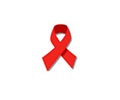
The paper looked at the population of the Canadian province of British Columbia, examining coverage of antiretroviral treatment and new cases of infection between 1996 and 2009.
Over this period, the annual tally of new cases fell by 52 percent, the researchers found.
For every 100 patients that were placed on the drugs, new diagnoses of HIV fell by three percent.
The paper, published in The Lancet, is authored by Julio Montaner, director of the British Columbia Centre for Excellence in HIV/AIDS in Vancouver, and president of the International AIDS Society.
The time scale of the study dates back to the introduction in 1996 of the triple HIV drug cocktail, which now provides a lifeline for five million badly-infected people.
Advertisement
Concentrations of virus in the blood among treated patients also fell sharply.
Advertisement
But having very low levels of virus also logically implies a fall in the risk of handing on the pathogen to others.
Previous studies have also highlighted the indirect benefit of antiretrovirals in preventing new cases of HIV.
As a result, some specialists say the time is near to declare antiretrovirals a preventative tool, alongside the condom, that should be added to the panoply of options for preventing spread of HIV.
Such calls have met with concern or even anger. Critics say HIV-infected people may be tempted to dispense with safe-sex measures, thus exposing partners to a risk, even very small, of infection.
The new study cautiously backs a policy review.
"Our results... provide a strong rationale for re-examination of the HIV prevention and treatment dichotomy," it says.
"Furthermore, our results should serve to re-energise the G8?s universal access [to treatment] pledge as a means to curb the effect of AIDS and the growth of the HIV pandemic."
The six-day International AIDS Conference was to open in Vienna late Sunday, drawing an expected attendance of more than 20,000 scientists, policymakers and grassroots workers.
More than 33 million people have AIDS or HIV, according to estimates for the end of 2008. At least 25 million have died of acquired immune deficiency syndrome (AIDS) since the disease first came to light in 1981.
Source-AFP














